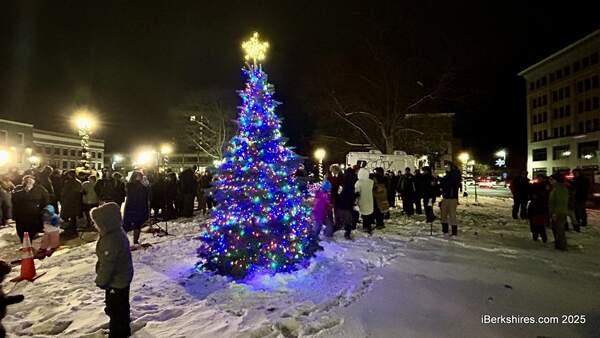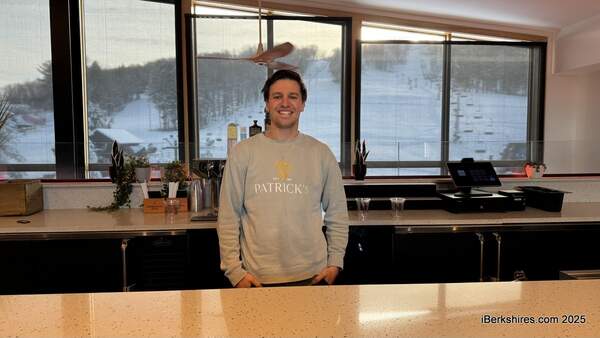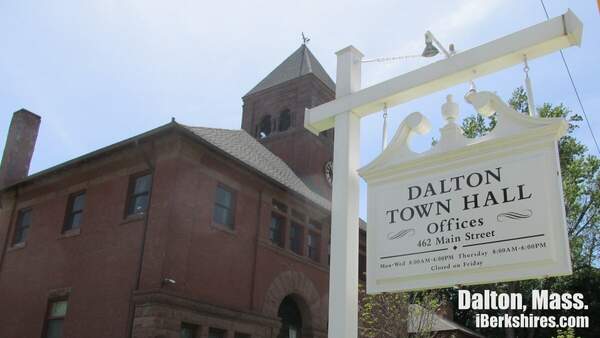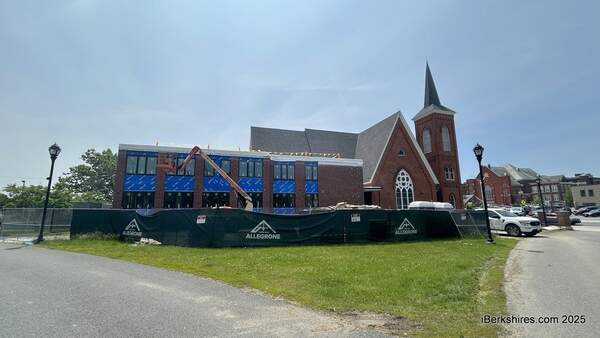Pittsfield Police Advisory Seeks Downtown Patrol Alternatives
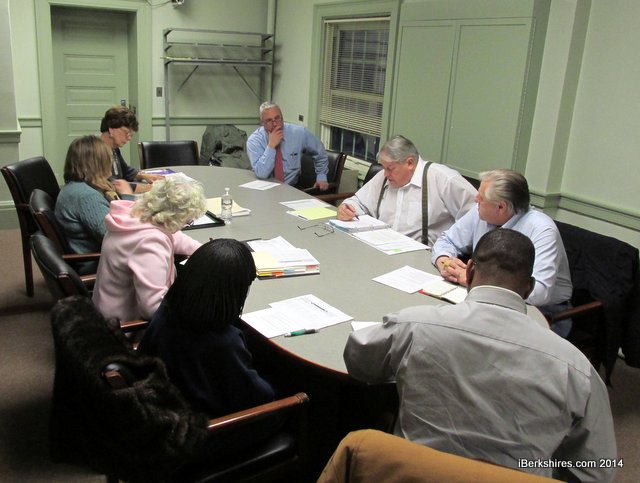 The Police Advisory Committee met on Monday to discuss alternative options for providing downtown patrols. The Police Advisory Committee met on Monday to discuss alternative options for providing downtown patrols. |
PITTSFIELD, Mass. — The Police Advisory Committee is considering other ways to increase downtown foot patrols after the mayor showed concern over the cost of hiring five more patrol officers.
The committee wrote a letter asking Mayor Daniel Bianchi to hire five additional officers to form a downtown unit, which would handle full time patrol of the North Street area.
The request stemmed from Downtown Pittsfield Inc. officials, who said the patrols help local businesses.
Bianchi had already approved using overtime to fund daily shifts to walk to the downtown area but Police Chief Michael Wynn said that was getting too costly.
Wynn, Downtown Pittsfield and the Police Advisory Committee felt the downtown would be better served with a patrol unit.
Police Advisory Committee member Katie Roucher said she had a conversation with the mayor, which led to the exploration of alternatives. The alternatives include having Downtown Pittsfield Inc. chip in for the cost, or implementing an ambassador and a cadet program.
"It's going to be budget-driven is what I got out of it," said Sheriff Thomas Bowler.
Roucher said one option would be to work with the merchants and have some of them pick up part of the cost. The group would then leverage that for matching state funds. The idea would be to create a "business improvement district" and use the funds for additional resources like equipment and lighting.
"They came to us seeking help and we're putting together a package," Roucher said.
Wynn said the department is nearing the implementation of an ambassador program. Police have been working with Berkshire Community College to identify criminal justice students who would use the program toward their "service learning" credentials. Two students have been identified and Wynn expects to see those applications in coming week.
"We could be up and running by mid-spring," Wynn said.
The ambassador program existed on grant funding for four years in the early 2000s but was cut when the money dried up. The students would help with crime reporting, patrol parking garages, escorting and directing people to areas of North Street, and helping with large groups of people getting out of events. They won't, however, be able to make arrests in their limited capacity.
The cost associated with the program includes radios, uniforms and outerwear. Bowler added that he might be able to assist with securing those needed.
Coupled with that, Wynn said he would like to start a cadet program, which would be for candidates the city hires during the period of time when they wait for academy training. The police chief said those candidates would go on the payroll and be given limited responsibility downtown until the complete academy training and take the fully badged position they were hired to do.
"We're prepared to put them on the payroll and keep them," he said, adding that oftentimes the candidates opt to go elsewhere during that period, leaving the department having to do another search.
Eventually, Wynn said he would like to have another program aimed to get high school students involved in policing efforts. The department would be able to work with the younger students through that program and then the ambassador program. The various programs would create a pathway for future officers.
While the cost of hiring the additional officers for patrols may be a cause for concern, Wynn said overall he is "optimistic" with his budget proposal. While the mayor isn't on board with all of his recommendations, he said, Bianchi has shown a willingness to increase spending in the department.
The big accomplishment so far, Wynn said, is that funding for special events are now proposed in a separate budget line. Previously, the department was using the overtime line item to account for security at downtown events. Now those events will have their own funding source.
Additionally, Wynn said the mayor has allocated funds to improve the department's technology.
In other business, the Police Advisory Committee met the department's new crime analyst, Amanda O'Connor. She joined the force in December after Bianchi approved the permission on the committee's request. The former military intelligence officer's job is to analyze information taken from a variety of databases.
Tags: advisory committee, downtown, North Street, Pittsfield Police,

